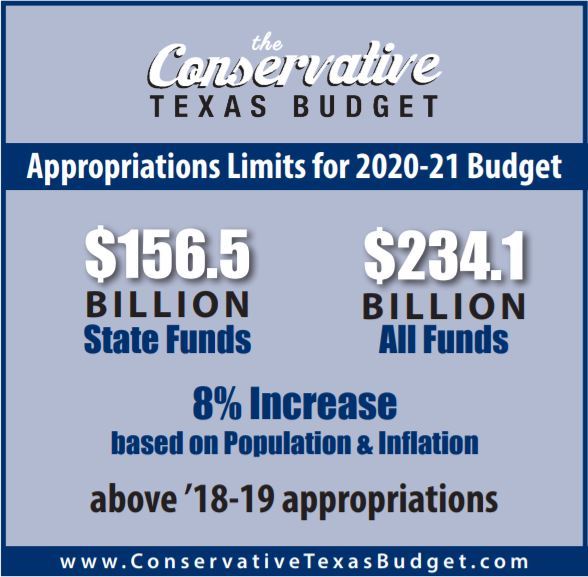Many families across Texas keep a lean household budget that’s within their limited resources. Priorities matter for every dollar within their budget, whether it be for savings or food. This means families track expenditures and compare them over time to determine how to best spend their money.
Your government should budget similarly.
You should be able to easily understand a government’s budget priorities by looking at the allocations of money collected from hard-working taxpayers. Given Texas has a balanced budget amendment and a spending limit, legislators are somewhat forced to spend within taxpayers’ means.
But the Texas Legislature’s budget is rather opaque and reliant on budget inertia. This means that most people don’t know how the government is spending more and more of their money. To increase budget transparency and initiate a better review process of every dollar spent, legislators have filed legislation this session that could achieve these worthy goals.
House Bill (HB) 237 would formally change the budgeting process to zero-based budgeting. This budgeting process is a method that requires that each government entity’s (i.e. institutions, departments, and agencies) budget be built from scratch with justifications for each expenditure.
Today, the Senate Finance and the House Appropriations committees are charged with the responsibility to review the entire budget, however, their review is not as thorough as likely required by zero-based budgeting.
The most formal review of an agency today is done by the Sunset Advisory Commission, which is a 12-member body that reviews every agency for whether the agency should continue to exist in its current structure. This Commission normally reviews most agencies “every 12 years,” but some go through the process every two years. The 12-year review cycle is likely too long for many entities.
Fortunately, HB 237 would increase the frequency of the review cycle for all entities to every 6 years, with about one-third reviewed each two-year legislative cycle, as recommended by the Foundation. SB 68 would do something similar by incorporating strategic fiscal reviews but at the current rather infrequent review cycle.
Ultimately, zero-based budgeting with an appropriate evaluation of the performance of every taxpayer dollar spent is essential for legislators to be good stewards of our money.
HB 689 deals with the appropriately reporting budget figures for an apples-to-apples comparison over time.
Currently, the Legislative Budget Board (LBB) reports the budget based on what’s estimated/budgeted in one period to what’s appropriated in the next. This comparison is between apples and oranges. The budgeted amount in the prior period includes what was appropriated and estimated expenditures whereas the appropriated amount this period doesn’t include estimated expenditures—that comes later. Therefore, this inconsistent budget comparison will typically indicate a smaller increase than in reality.
The Foundation’s Real Texas Budget provides a consistent budget comparison depending on the stage of the budget cycle. At this early stage when only recommended budgets with appropriations are available, an accurate comparison is appropriations-to-appropriations. HB 689 directs the LBB to use this truth-in-budgeting approach so taxpayers know how their money is truly allocated and what the real increases are over time.
This is important so that every budget increases at each stage of the budget cycle by less than the Conservative Texas Budget, based on increases in population growth and inflation, allowing more opportunities to prosper from lower tax burdens than otherwise. The figure below provides the 2020-21 Conservative Texas Budget figures based on changes in appropriations of less than 8 percent.

The budget process in Texas needs to be far more transparent and lean. In adopting these recommendations discussed here, Texas can be the model for proper budgeting of taxpayers’ money so families can best allocate it in their household budget.